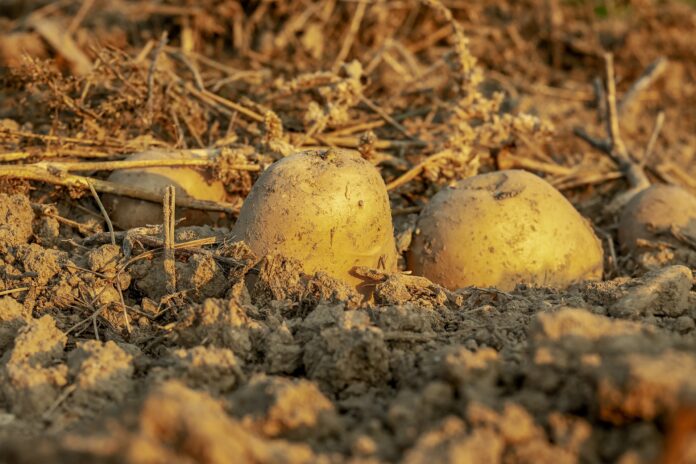The United States Department of Agriculture (USDA) awarded Oregon State University (OSU) a USD$50 million grant to work on cropping practices with farmers and Native American Tribes to amplify soil health and lessen the Pacific Northwest potato industry’s carbon footprint.
OSU is joining forces with the “University of Idaho and Washington State University, Tribal nations, commodity groups and potato processing businesses,” according to a release.
OSU’s initiative is one of 70 projects funded by the USD$2.8 billion provided by the USDA’s Partnerships for Climate-Smart Commodities program. The program was created to aid farmers, ranchers and forest owners across America and to enhance rural and agricultural communities by providing markets for the USDA coined climate-smart commodities that implant green and climate resilient practices.
“Oregon State University is privileged to take part in this once in a lifetime opportunity to help the potato industry, Native American tribes and other crop producers of all sizes and kinds be part of a national solution to climate challenges,” said Jeffrey Steiner, project leader and OSU Global Hemp Innovation Center associate director.
Over 62 per cent of potatoes in the U.S. are produced in Oregon, Washington and Idaho, reaching an annual economic value of USD$2.2 billion, according to the USDA. Together, these three states grow nearly 500,000 acres of potatoes.
Typically, potato production utilizes practices that disturb the soil to prevent the build of organic matter and loss of greenhouse gases, explained project leaders. This project was created to “assist farmers who want to use soil health building practices that result in climate-smart outcomes,” shared the release.
OSU, their partners at universities and the Soil Health Institute’s research will center on how climate-smart practices and potato rotation crops can offset the impacts of soil-disturbing practices. Cereal grains, alfalfa, corn, hemp and onions will act as the rotation crops for the project. Climate-smart practices including decreased tillage seedings, cover crop usage and mulching residues will be used.
Researchers believe employing the correct combination of techniques could greatly increase soil organic matter, lessen soil nutrient losses and enhance the soil’s water holding capacity. These improvements would lead to better soil health, water conservation and additional climate-smart outcomes.
The team will analyze the methods currently used for potatoes and rotation crops for conventional and organic farms, as well as Native American lands. Researchers will then collaborate with farmers and Tribal leaders to identify soil health building initiatives and rotation options specific to their farms and land conditions.
Changes will be tracked by measuring soil data for models that can verify the approaches are effective. Farmers and Native American Tribes that participate will collect incentive payments to offset initial costs from adopting climate-smart practices.
“We want to provide potato and other farmers incentives for finding climate-smart practices that make sense for them and their farm conditions,” said Steiner.
The team will also focus on developing ways to market and push climate-smart potatoes and additional crops.
Read More:
The Effect of Climate Change on Potatoes in Canada









